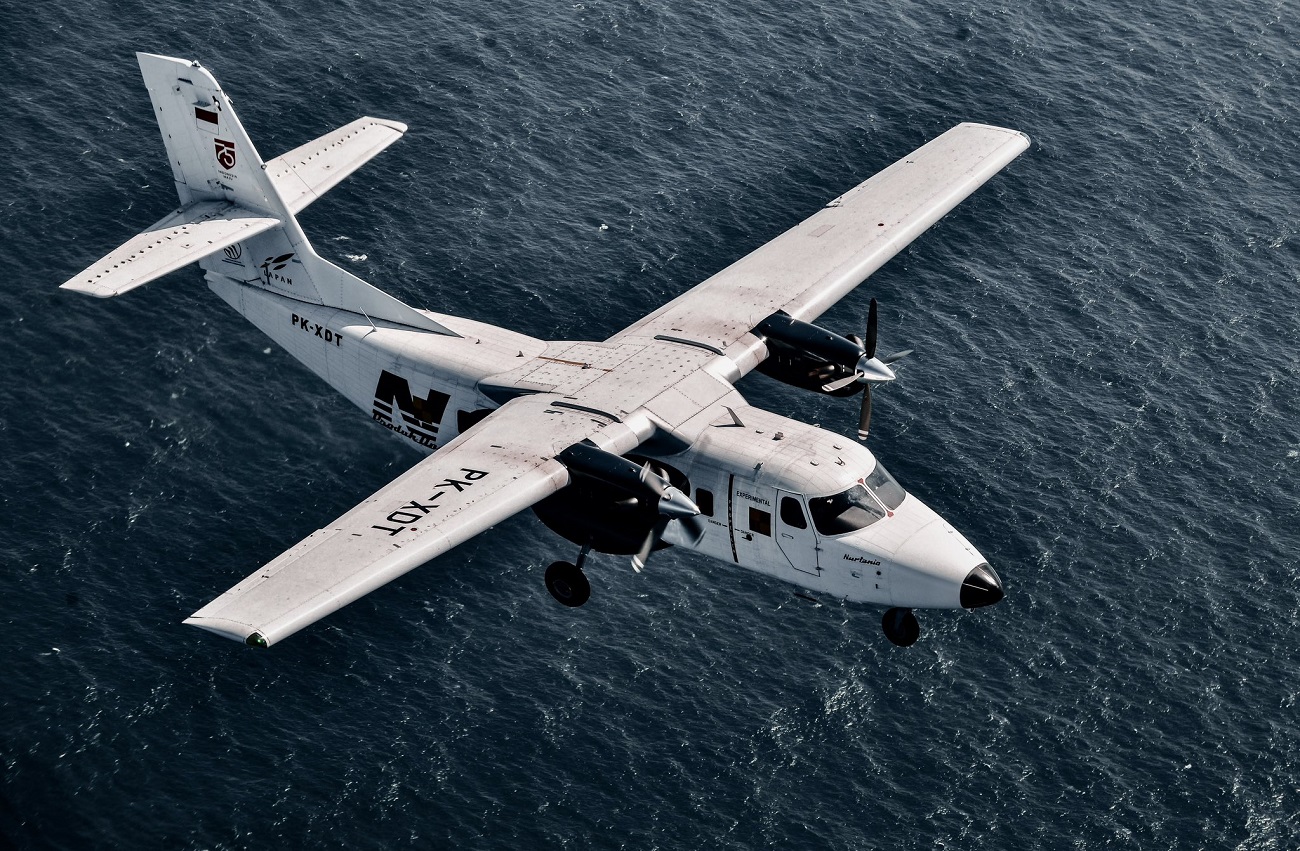Indonesia’s state-owned aerospace company, PT Dirgantara Indonesia (PTDI), has achieved a significant milestone by clinching its inaugural contract for the N219 Nurtanio twin-turboprop aircraft with a military client. PTDI has inked a deal with the Indonesian Ministry of Defence (MoD) for six N219 airframes, totaling a substantial USD 68 million. Derived from the esteemed Casa C212 Aviocar, the N219 aircraft was conceived in 2007 with a vision to serve as a versatile, short take-off and landing platform capable of operating from remote and austere runways, a necessity in Indonesia’s diverse topography. Speaking exclusively to Janes at the Singapore Airshow 2024, a PTDI spokesperson confirmed the details of this transformative contract, highlighting the strategic importance of this venture for both the company and the Indonesian armed forces.
The N219 Nurtanio stands as a testament to Indonesian engineering prowess, embodying a blend of innovation and practicality. Designed as a twin-engine, 19-seater transport aircraft, it boasts a range of capabilities tailored to meet the demands of modern military operations. Its robust construction, drawing from the Casa C212 lineage, ensures reliability and resilience in challenging environments, while its spacious cabin, touted as the largest in its class, facilitates versatile mission configurations, accommodating both passengers and cargo with ease. Priced competitively at $5.8-6 million, the N219 offers exceptional value without compromising on performance. With a cruising speed of 190 knots (350 km/h), it excels in various roles, from cargo and troop transport to military surveillance, search and rescue, and medevac operations. The aircraft’s adaptability extends even further with the prospect of an amphibian version in the pipeline, promising enhanced versatility across different terrains.

Technical specifications highlight the N219’s impressive capabilities, with dimensions optimized for maneuverability and payload capacity. With an overall length of 16.7 meters, a height of 6.2 meters, and a wingspan of 19.5 meters, it strikes a harmonious balance between agility and stability. Sporting a maximum take-off weight of 7,030 kilograms and a payload capacity of 2,313 kilograms, it delivers formidable performance across a range of mission profiles. Powered by two Pratt & Whitney PT6A-42 turboprop engines, the N219 achieves maximum and economic cruising speeds of 389 km/h and 315 km/h respectively, ensuring swift and efficient operations in diverse environments. Even when laden with a full complement of passengers, approximately 19 in total, the aircraft boasts an impressive range of approximately 900 kilometers, further enhancing its operational flexibility.
Noteworthy is the aircraft’s substantial domestic content, with sixty percent of materials sourced locally, underscoring PTDI’s commitment to supporting Indonesia’s burgeoning aerospace industry. Collaborating with local suppliers for landing gear parts, rubber components, and tooling further strengthens the nation’s industrial capabilities, paving the way for future advancements in aerospace technology. As the N219 Nurtanio twin-turboprop aircraft prepares to serve the Indonesian Army in troop and cargo transport capacities, it heralds a new era of capability and reliability for the nation’s armed forces. With its advanced features, competitive pricing, and robust domestic support, the N219 stands poised to make a lasting impact on Indonesia’s military aviation landscape, exemplifying the spirit of innovation and excellence driving PTDI forward.













